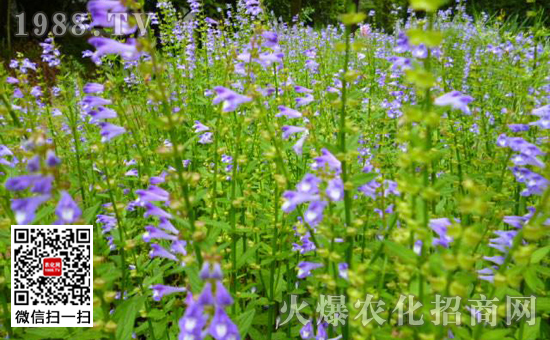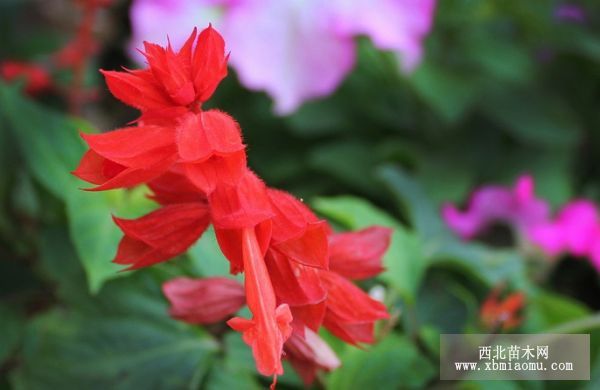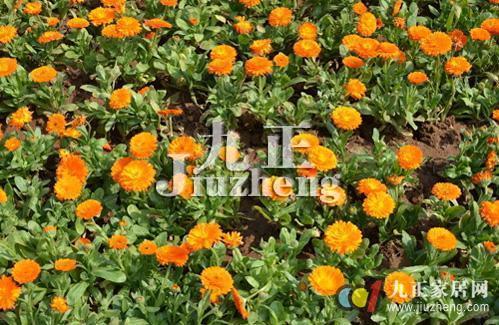How to grow scutellaria barbata?
According to the planting method of Scutellaria barbata, the height of half lotus plant is 30cm and 40cm. The lower part of the stem is creeping and rooting, the upper part is erect, and the stem is square and green. The leaves are opposite, the leaf blade is triangular or oval, the edge has wavy obtuse teeth, the lower leaf is larger, and the petiole is very short. The flowers are small and 2 opposite. The florescence is from May to June and the fruiting period is from June to August.
Half lotus prefers a warm and humid climate and does not require high soil conditions. Wild is most common in ditches, fields and roadside wet places, too dry soil is not conducive to the growth of Scutellaria barbata. After the general cultivation of Scutellaria barbata for 3 or 4 years, the plant begins to senescence and its germination ability weakens, so it must be planted separately or re-sown. Seeds are easy to germinate, the optimum temperature for germination is 25 ℃, and the life span of seeds is 1 year.
Seed propagation is the main method, and ramet propagation can also be used.
① seed propagation is mostly direct seeding, from late September to early October, strip sowing or hole sowing. Strip sowing is ditched according to the row spacing of 25 cm and 30 cm, and the ditch depth is about 4 cm; the hole seeder opens the hole according to the hole spacing of 27 cm. When sowing, first sprinkle the seeds into plant ash mixed with fertilizer, mix them into seed ash, and then evenly scatter them in the ditch or hole, covered with a layer of fine soil or plant ash, the thickness shall not exceed 0.5 cm. After sowing, the soil should be kept moist before emergence, and the seedlings can emerge about 20 days after sowing.
② ramet propagation was carried out in spring and summer. Dig up the old roots of the plant, select strong, pest-free plants for split, each plant has 3-4 seedlings, planted in holes about 27 cm apart, and watered after planting. The above is the introduction of the planting method of Scutellaria barbata.
How to plant Scutellaria barbata? Planting method of Scutellaria barbata
Many people like to plant Scutellaria barbata, so do you know how to grow Scutellaria barbata? Next, the editor will introduce the planting method of Scutellaria barbata to you in detail.

The planting method of Scutellaria barbata:
Planting Scutellaria barbata: preparing potted soil
Although "barren tolerance" is one of the characteristics of Scutellaria barbata, its growth does not care about the quality of the soil, but as flower growers always expect flowers to grow strong roots, numerous leaves, and colorful flowers, so it is better to prepare a loose, breathable and fertile soil as much as possible.
During this period, oily foods that are out of date at home, such as sesame powder, soybean dregs from self-milled soy milk (let them ferment), or fish intestines (fermented in advance) can be used as base fertilizer.
Planting of Scutellaria barbata: sowing and cultivation
At the end of April and early May, the climatic conditions in the south of the Yangtze River are the most suitable for sowing. Before and after a month and a half of the growth period, it can be described as rapid growth and rapid growth, during which the secret lies in sowing this link.
In order to make the seeds come into close contact with the soil, planting half-branch lotus seeds only need to spread the seeds evenly on the surface of the fine-grained basin soil, and then cover a very thin layer of fine soil.
Raising seedlings
It is very important to ensure that the seedlings survive the extraordinary period safe and sound. Be patient enough to take care of them, just like treating babies in swaddling clothes. If you don't pay attention to them, the seedlings will die young, and the seedling rate will be greatly reduced.
Interseedling and transplanting
Inter-seedling is also called plucking seedling, which is to keep a certain distance between seedling and seedling. Choose a pair of sharp-nosed tweezers for Miao tools. When the seedlings grow a few millimeters high, they can begin to grow. Adopt the method of batching and time-sharing, always remove the relatively thin ones and leave the sturdy ones until there is still a gap of three or four centimeters between the seedlings.
Take off the head
When the seedlings grow to 3 or 4 cm high, branches grow again from the roots. At this time, take off the tip of the main branch, and soon a cluster of branches will sprout at the break. When the branch of the root grows to a certain length, the branch can also be decapitated. After this treatment, Scutellaria barbata is dwarfed and the plant type becomes more beautiful.
Irrigate
At the seedling stage, the weather is not very hot, and the moisture evaporates slowly, so it is not suitable to irrigate too much. When the flowering period is in three days, it needs to be watered thoroughly and fully absorbed.
Planting Scutellaria barbata: harvesting seeds
The mature lotus seed is silver gray, but it is difficult to harvest it at the right time. The seed clip is either cracked or the seed is gone. So always touch those yellow seed shells with your hands, the seed shells that fall off as soon as you touch them are the best; you can't touch them, but the shell is yellow and white, so take it off and pinch it with your two fingers to reveal the blackened seeds. this is because it is still a little damp, and after a while, the black seed becomes silver gray seed.
What should be paid attention to in the planting method of Scutellaria barbata
Scutellaria barbata is a good beautification and decoration of flowers, its bright and moving colors and beautiful and skilled flowers, used to decorate the bedroom and courtyard is a very good choice. Today, the editor brings you the planting methods and points for attention of Scutellaria barbata. Let's take a look at the details.
The planting method of Scutellaria barbata:
Environment
Like warm, dry, sufficient light environment, drought tolerance, avoid waterlogging, strong adaptability.
Planting
Cuttage culture is the main. The branches were cut off and placed in a shady environment for one day, and then directly inserted into plain sand the next day. After watering, it was easy to take root in a warm environment.
Temperature
Like warm, not cold-resistant, the suitable temperature for growth is 20-30 degrees Celsius.
Light
It is sensitive to light and is a strong positive flower. Do not tolerate shade, high temperature in summer, when the plant growth and flowering period, but also need to give enough sunshine, the plant can bloom luxuriantly and brightly colored.
Watering
Because the fleshy stems and leaves can store water, they have strong drought resistance and can grow and blossom under drier conditions. However, in order to make the plant grow and blossom well, it is also necessary to provide proper water.
Diseases and insect pests
There are diseases and pests such as rust and diamondback moth.
Seedlings overwintering
Every year after the solar terms, Frosts Descent moves the double sunflowers indoors to the sun. After the beginning of winter, put it on the inside of the glass window and let the basin soil dry a bit, so that you can survive the winter safely.
Matters needing attention in culture
Avoid excessive dampness and stagnant water, when it is more than 7 feet, it is easy to cause plant stems and leaves to grow, and even rotten roots to die. When the cold spell comes, it needs to be maintained in the window. Sufficient light is needed throughout the growing period to make the plant grow and blossom normally.
- Prev

A string of red summer maintenance?
A string of red summer maintenance? Red string native to South America, sexual preference for warm and humid climate, its suitable temperature for growth of 20-25 ℃, avoid hot and dry. In the hot summer season, the temperature is often as high as 35 ℃, and the growth of a string of red saffron will be affected by adverse environments such as scorching sun, drought and no rain.
- Next

How to grow calendula?
The planting method of calendula, the flower of calendula can be divided into single and double, and the color is light yellow, yellow, golden yellow and so on. In winter, the temperature is low, the illumination time is short, and the intensity is weak, which has a great influence on the color of the flower. Light yellow or yellow is affected by the above conditions, the color of the flower is relatively light, even tends to be white, so
Related
- Fuxing push coffee new agricultural production and marketing class: lack of small-scale processing plants
- Jujube rice field leisure farm deep ploughing Yilan for five years to create a space for organic food and play
- Nongyu Farm-A trial of organic papaya for brave women with advanced technology
- Four points for attention in the prevention and control of diseases and insect pests of edible fungi
- How to add nutrient solution to Edible Fungi
- Is there any good way to control edible fungus mites?
- Open Inoculation Technology of Edible Fungi
- Is there any clever way to use fertilizer for edible fungus in winter?
- What agents are used to kill the pathogens of edible fungi in the mushroom shed?
- Rapid drying of Edible Fungi

